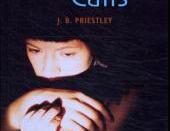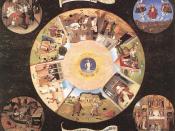During the course of the play, a significant number of characters crimes that are mostly moral of form but on particularly rare occasions, a few commit crimes that are totally legal. Gerald's quote is not exactly challenged at the time of the play that he makes the quote, but as the play goes on, nagging doubts start challenging the allegation. The whole of the Birling family, though however far-fetched, have seemingly contributed to the suicide of Eva Smith/Daisy Renton. J.R Priestly tries to lead the reader into believing this phenomenon by inventing a character named as Inspector Goole. Even the Inspector's name and the addition of his highly unusual personality imply that he is not a creature of the living world, but a ghoul or a spirit. The death of Eva Smith is considers as the result of a chain of events (which of course involve all of the Birlings).
The Birlings are a very high class and noble family compared to the rest of the people in the Edwardian Era, Mrs. Birlings being a member of the Aristocracy. But Mr. Birling in fact was born into the working class. He worked his way into the upper classes of society by his own ability in doing business. Furthermore, Mr. Birling is extremely right wing and is thoroughly against the idea of communism as evident in the quote, '...wretched community and all that nonsense'- Mr. Birling (i). He is conveyed as a gluttonous man that cares more about his business that his family. His children, possibly because of the way they were brought up, always undermine him and never take his side in an argument for e.g. 'I think it was a mean thing to do' -Sheila. (i) Arthur Birling's has a know-it-all kind of personality and thinks that whatever...


